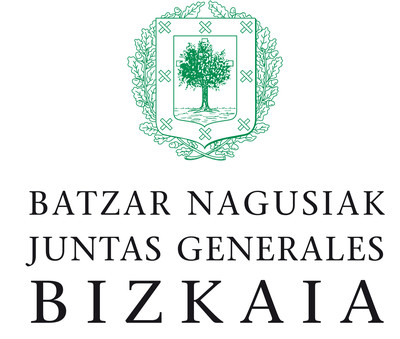PRESENTATION
ABAO Bilbao Opera schedules for the fifth time Don Pasquale, the last of the great Italian comic operas, inspired by the commedia dell’arte.
In this opera, Donizetti seeks a critique of social mores as the main thread of the plot and, to this end, he devises a situation comedy focused on four characters: the domineering, foolish and cantankerous Don Pasquale, played by Simón Orfila; the lovers: the naive Ernesto and the clever Norina, played by Maria José Moreno and Francesco de Muro; and Doctor Malatesta, in the traditional role of mediator and accomplice of intrigues, played by Damián del Castillo. The well-known actor Pedro Mari Sanchez plays the role of the Notary.
It is a distinguished and well-articulated comedy full of feeling, with a succession of comic and lyrical, extravagant and tender, critical and endearing scenes with an elegant combination of arias, duets and ensembles.
As for the music, Maestro Sesto Quatrini makes his debut leading the Euskadiko Orkestra, conducting what is considered to be Donizetti’s most balanced and perfect score.
On stage, a new co-production by ABAO Bilbao Opera and Okapi Producciones signed by Emiliano Suárez in his debut at ABAO, recreating a charming Neapolitan pizza parlour with a witty, clever and original scenic solution full of movement, which also stands out for the abundance of detail.
On the 26th of October this title includes an Opera Berri performance. This social-cultural initiative by ABAO Bilbao Opera reaches its 19th edition and aims at bringing opera closer to society, with well-known titles and tickets at half the usual price. The second cast stars Enric Martínez-Castignani, Sofía Esparza and Juan Antonio Sanabria.

ARTISTIC SHEET
CAST
- Don Pasquale
- Don Pasquale BERRI
- Norina
- Norina BERRI
- Ernesto
- Ernesto BERRI
- Dottor Malatesta
- Un Notario
ARTISTIC TEAM
- Director Musical
- Director De Escena
- Escenografía
- Vestuario
- Iluminación
- Orquesta
MULTIMEDIA
SYNOPSIS
ACT I
In a room at his house, Don Pasquale –an “elderly bachelor of the old school, thrifty, gullible and stubborn but at heart a good man”– is impatiently watching the clock. He is awaiting the arrival of Dr. Malatesta and is furious with his nephew, Ernesto, who has fallen in love with Norina, a young and impoverished widow, instead of the wealthy young woman he has selected for him. The old bachelor, to punish him, has decided to disinherit him and get married himself. He is counting on Dr. Malatesta’s advice to find himself a fiancée but, as Malatesta is a friend to both Ernesto and Norina, he is in fact concocting a scheme to exasperate the stubborn old man and force him to give his consent to the young couple’s marriage. Elated, Malatesta tells Don Pasquale that he has found a beautiful, docile and modest young woman, as well as rich. It is in fact his own sister, Sofronia, who has just left the convent. Don Pasquale feels happy and impatient and he calls his nephew to inform him of his intentions and throw him out of the house. Fearing that he can no longer be able to offer Norina a secure future, Ernesto sees all his hopes dashed and feels betrayed by Malatesta, whom he had believed to be a friend.
In a room at her house, Norina is reading a love story while waiting for Malatesta, who hints that he has devised a plan to make the old man see reason. She receives a letter from Ernesto in which he tells her that his uncle has thrown him out of the house and that he is about to leave “with death in his heart”. Malatesta reassures her and explains that his plan involves her impersonating his sister Sofronia. She will win the old man’s heart with her tricks, convince him to marry her (the mock ceremony will be performed by his cousin Carlotto) and will make his life so difficult that he will be willing to agree to the young couple’s marriage. Norina is delighted at the prospect of acting out this farce and gleefully prepares for it.
ACT II
At a room at Don Pasquale’s house, Ernesto is preparing to depart to a “distant land”. Don Pasquale, elegantly dressed and with renewed vigour, impatiently awaits his fiancée. She arrives, trembling and veiled, on the arm of Malatesta, who begs his friend to be tactful and patient, since the young girl is unaccustomed to male company and is very shy, thrifty and quiet: a real pearl. Don Pasquale, captivated by such a well-mannered young lady, implores her to remove her veil and, when she does so, he is overwhelmed by her beauty. Stammering and perspiring, he is willing to wed her at once. The false Sofronia accepts his marriage proposal. The fake notary arrives and in the marriage contract Don Pasquale agrees to give his wife half of his property and makes her the mistress of the house. Ernesto, unaware of the plot, appears at the time of signing and is asked by his uncle to sign as a witness. “Thunderstruck”, the young man realises that the bride is Norina, but Malatesta quickly informs him in an aside that it is a hoax.
After the marriage contract is signed, the first thing Norina does, to Ernesto’s amusement, is to refuse her husband’s embrace. Don Pasquale takes offence and tries to turn his nephew out of the house, but Sofronia decides that she wants to have the young man as her squire and warns her husband that, from now on, she will be the only one allowed to say “I want” and, if they don’t obey willingly, she will use force. Shocked and terrified, the old man stands speechless, helplessly witnessing the decisions she makes: she doubles the butler’s salary, has a dozen more young servants hired, buys two coaches, eight English horses and two riding horses. She also orders new furniture and asks for a hairdresser, a dressmaker and a jeweller. Finally, she orders a banquet for fifty people for that same evening. Don Pasquale, on the verge of collapsing, tries to intervene but she, who is thoroughly enjoying the hoax by now, prevents it “with increasing anger”. With the complicity of Malatesta, who advises his old friend to go to bed and pretends to reprimand his sister, the young couple exchange words of love.
ACT III
A room at Don Pasquale’s house, where servants and tradesmen come and go amidst utter chaos: there are dresses, hats and furs everywhere and the old man, in dismay, faces a pile of bills to pay. Norina enters, elegantly dressed, and announces that she is going to the theatre. Her husband tries to stop her and when he calls her “hussy”, she slaps him. Don Pasquale feels devastated and Norina keeps provoking him, calling him “grandpa” and telling him to go to sleep. She leaves the house and drops a letter whose content is immediately read by her husband: an unknown person is arranging a love date with her in the garden that very evening. Don Pasquale, out of his wits, sends for Malatesta.
The servants complain that they are overworked and speak about the strange behaviour of the newlyweds. Dr. Malatesta arranges the final scene of the comedy with Ernesto and goes to talk with his friend, who, “dispirited”, tells him “with solemn sadness” about all the outrages committed by his sister (including the alleged infidelity that she is about to commit) and demands revenge. At first, Malatesta advises him to act prudently, but he then pretends to be in agreement with him and proposes to hide in the garden, expose the lovers and throw his unfaithful wife out of the house. The old man, who is already savouring the taste of revenge, gives him carte blanche for everything to be done as he wishes.
In the garden at Don Pasquale’s home, it is night and Ernesto, accompanied by a small chorus, sings a serenade. Norina/Sofronia cautiously opens the gate and both of them enter the garden. They lovingly embrace while Don Pasquale and Malatesta hide in silence to barge in later on unexpectedly. Ernesto enters the house quietly and she confronts her husband, who demands to know the name of the man she was flirting with. She protests her innocence but Malatesta suggests her not to be stubborn because Ernesto’s new wife, Norina, will be arriving the following day. She pretends to be furious and says that she prefers to leave than to live under the same roof as that upstart, although she wants to be sure that the wedding is actually going to take place. Malatesta informs Ernesto that his uncle has agreed to his marrying Norina, promising him a yearly allowance of four thousand scudos. Don Pasquale wants the wedding to be as soon as possible, but they don’t know where the bride is. Malatesta then reveals that Sofronia and Norina are in fact the same person and admits that he was responsible for concocting the whole scheme. The young lovers apologize and the old man, beaming with happiness due to his being out of danger, is moved and gives them his blessing. Norina gives the bottom line of the story: “Foolish indeed is he who marries in old age: he is only asking for trouble and sorrow”. Everyone, including Don Pasquale, agrees with her.




























































